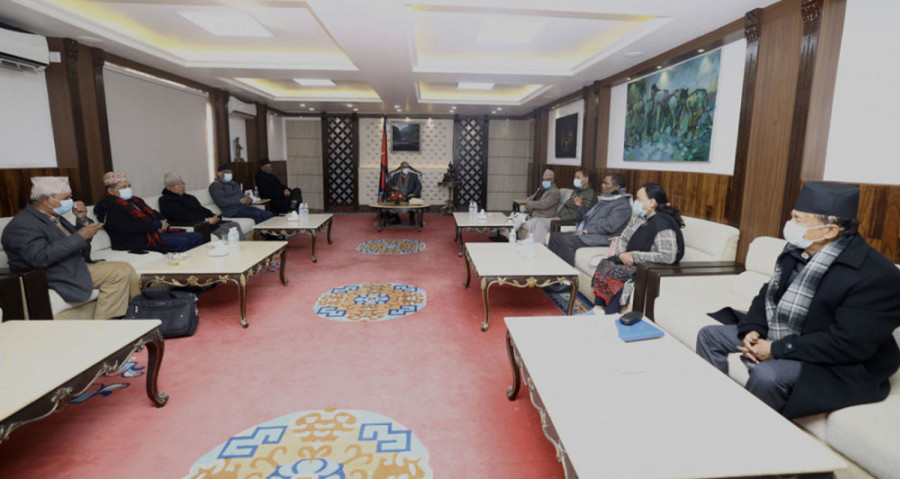Politics
Coalition members engage in blame game after impasse in seat-sharing talks
Parties accuse each other of being overly rigid in their demands.
Nishan Khatiwada
A seat-sharing deal among the ruling coalition partners for the upcoming federal and provincial elections looks doubtful with each of them unwilling to compromise on their demands.
While they stick to their demands, they have also started holding each other responsible for the failure to strike a deal.
CPN (Unified Socialist) chair Madhav Kumar Nepal said at a function last week that the Nepali Congress does not deserve more than 70 lower house seats, but has been insisting on more seats. “Isn’t 70 seats enough for them now?” Nepal said at the function.
After over a month’s struggle, the coalition task force formed to finalize a seat-sharing deal for the November 20 elections has submitted a report to the top leaders.
The ruling coalition has Nepali Congress, Maoist Center, Unified Socialist, Janata Samajbadi Party, and Rastriya Janamorcha as partners.
Now, it is the responsibility of top leaders of the alliance to take the seat-sharing talks to a logical conclusion.
Insiders say the parties have reached agreement on 90 constituencies and the decision on the remaining 75 constituencies will be made by the top leaders of the coalition.
Some leaders said they have been unable to strike a deal due to rigid stances of certain parties.
Nepali Congress whip Min Bishwakarma claimed that his party has shown the utmost flexibility and settled for less than 90 seats. “If we cede more seats to other members, this could lead to disintegration of the coalition,” he said.
“Congress will not agree on 70 seats like other parties want. This will put our party’s image and organisation at stake. We have shown considerable flexibility, so it is other parties’ turn to become flexible now,” he told the Post.
Just because the Congress wants to continue the alliance formed to protect the democratic system, other parties should not take it as Congress’ weakness and pressure for an uneasy compromise, said Bishwakarma.
Nepali Congress, which had earlier demanded 100 seats, has agreed to settle for 85-90 seats, while the Maoist Centre has agreed on 45-50 seats. The remaining seats are to be divided among the Janata Samajbadi Party and the Unified Socialist which have been claiming 32 and 40 seats respectively.
Himlal Puri, Rastriya Janamorcha leader in the task force, said the rigid stances of big political parties are making the seat sharing arrangement a tough row to hoe.
“They all tell each other to be flexible enough but do not budge on their stances. All four parties have been demanding more than they deserve except the Rastriya Janamorcha,” Puri told the Post.
Speaking at a function in Birgunj on Thursday, Janata Samajbadi Party chair Upendra Yadav said if the seats are not divided satisfactorily then there is no point of forming the coalition.
Apart from the ruling coalition partners, Deuba and Pushpa Kamal Dahal are also under pressure to bring the Loktantrik Samajbadi Party, Bamdev Gautam, and Baburam Bhattarai led Nepal Samajbadi Party on board the alliance.
Bhattarai on July 28 registered the Nepal Socialist Party after parting ways with the Janata Samajbadi Party. Likewise, Gautam on July 29 announced the formation of the Nepal Communist Party Ekata Rastriya Abhiyan.
Ram Sahaya Prasad Yadav, a Janata Samajbadi Party leader who is also a member of the task force, said the Nepali Congress and CPN (Maoist Centre) are not showing necessary flexibility.
“We are flexible on our part. Being larger political forces, they have more responsibility to incorporate everyone in a just manner to conclude the seat-sharing arrangements,” said Yadav.




 16.12°C Kathmandu
16.12°C Kathmandu














